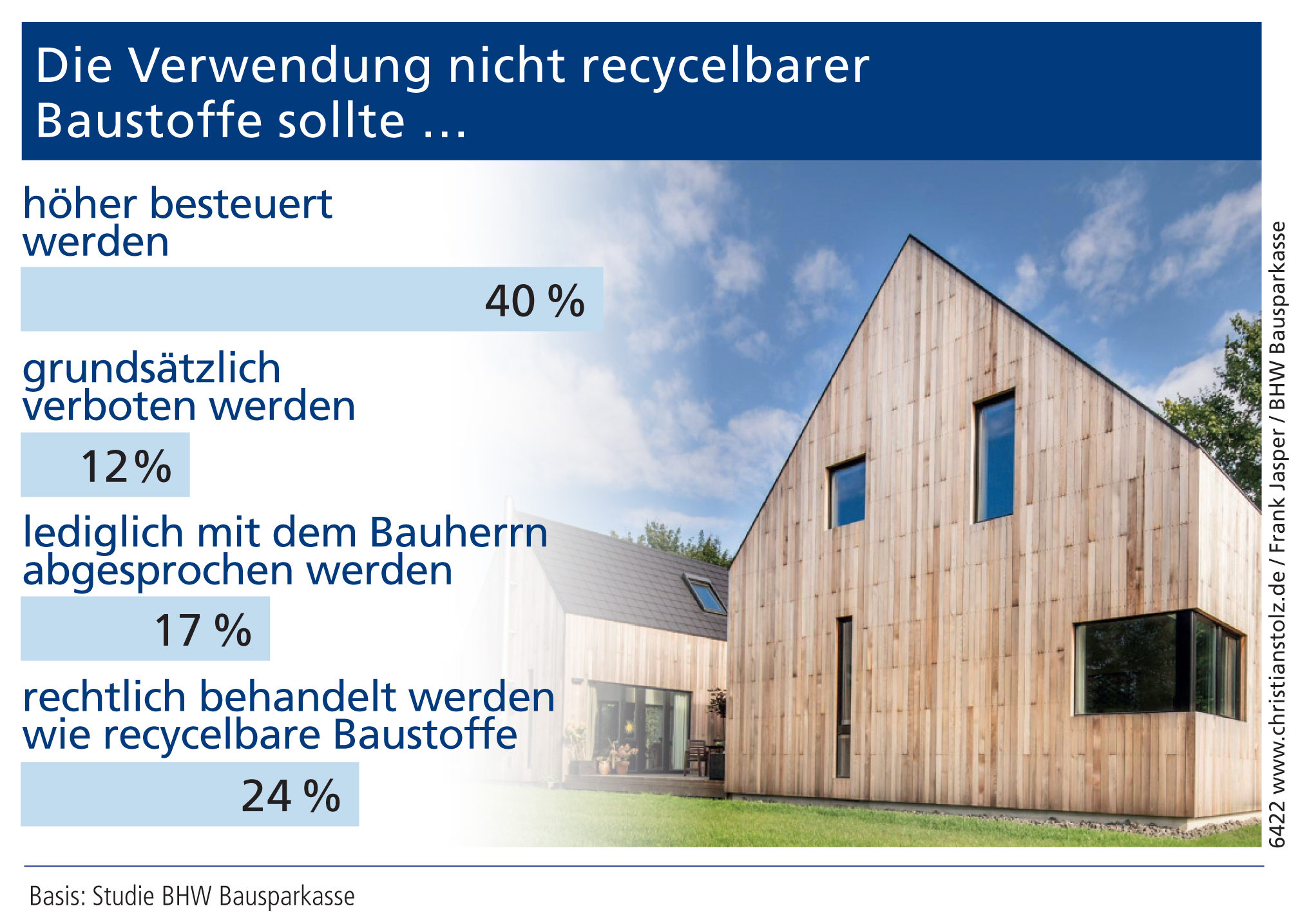Building savings – sustainability by tradition
Those who finance with a home savings contract often enter into a long-term relationship. Building savers do not want to achieve short-term returns, but rather to purchase a house or apartment for themselves and their family in a planned and secure manner. Can there be a more sustainable form of saving?
When the foundation for the modern building savings collective was laid in England in the mid-1800s, the term “sustainability” had only been around for about 60 years. Since then, building savings have been a central element of society’s focus on sustainability: careful, responsible use of resources has been one of the guiding principles here from the very beginning.
The modern building savings contract, as a component of secure provision for the future, is also characterized by sustainability in its capacity as a fundamental building block for financing home ownership. Whether for construction, acquisition or modernization, building savings contracts provide relief from the strained real estate market through the formation of equity, interest rate hedging and state subsidies.
Responsible use as a matter of principle
The financing of energy-efficient new buildings and the energy-efficient modernization of existing properties in particular promotes the responsible use of resources and thus makes a significant contribution to increasing energy efficiency and reducing CO2 emissions.
Regular savings contributions with long-term fixed interest rates on loans, even for measures to be carried out much later, create planning security in the construction and modernization of one’s home, and are thereby, literally: sustainable.
Ownership takes root
People who live in their own homes develop a very special relationship with their house, their neighborhood, their city. Ownership puts down roots and is a social obligation at the same time. It is therefore in everyone’s interest to have a solid financing culture with institutions like BHW, which plays a key role in embodying this culture and giving it stability.
It will not be possible to ease the situation on the housing markets in the major cities and conurbations without mobilizing private capital. The same applies to achieving ambitious climate protection targets.
Independent of trends
The outlook for home investors is good: interest rates are still low, and construction prices remain affordable in many places. The ups and downs on the markets do not put home savers off their guard. Their savings model has proven to be crisis-proof.
For Germans, buying real estate is a well thought-out investment in a secure future. A house can not only accompany its owners throughout their lives, but also plays a major role as an inheritance for children or grandchildren.

Real estate makes the difference
Buildings are responsible for around 30 percent of CO2 emissions and 35 percent of final energy consumption in Germany.*
Half of these are attributable to direct energy consumption, for example for heating, and half to indirect energy consumption, for instance in the production of building materials or electricity. The latter is statistically attributed to the industrial and energy sectors.
In 2020, the building sector was the only one to fail to meet the German government’s climate targets. Even though the CO2 balance of the Corona Year was largely determined by the effects of the coronavirus pandemic – it shows how important it is for climate protection to modernize buildings in terms of energy efficiency, to replace old heating systems and to use environmentally friendly building materials. Every property owner or builder can make an important contribution here.
By the way, the Germans’ awareness of sustainability has increased significantly during the Corona pandemic. This is confirmed by various surveys, for example here.
Energy-efficient construction: Quality pays off
Pros:
- Significant reduction in energy costs. Example: An efficiency house 55 requires only 55 percent of the primary energy compared to the legal minimum standard.
- High living and home office quality.
- Extensive government subsidies.
- Low renovation and modernization costs for the foreseeable future.
- High value stability thanks to better and contemporary construction quality.
- Positive impact on climate and environmental protection thanks to lower energy consumption, use of renewable energies and sustainable building materials.
Cons:
- Slightly increased construction costs.
- Increased effort for funding applications and selection of construction partner.
A new heating system – is it worth it?
The German government’s goal is to make Germany’s building stock as energy-efficient as possible. Anyone who renovates their home and readies it for the future in terms of energy will be rewarded by the state.
Modern heating systems receive particularly high subsidies, because they have a great deal of leverage in terms of their own energy consumption.

Five good reasons to start investing in the renewal of your own heating system:
Energy saving, climate protection.
Modern oil and gas condensing boilers work more efficiently – that is, they extract more energy from the fuels used and generate fewer CO2 emissions. This reduces heating costs and helps to protect the climate.
Even better: generation of heating and hot water from renewable energies such as solar, wood or geothermal energy.
Get subsidies
Never before has the state provided as much support for heating replacement as it does today. These include direct grants, low-interest loans and tax breaks.
This is particularly worthwhile when replacing an oil-fired heating system: The German government subsidizes the switch to more climate-friendly heating systems with grants of up to 55 percent.
Save repair costs
Depending on the age and condition of the heating system, frequent repairs are often more expensive than replacing the entire system.
In addition, old heating systems often break down when they are needed most: in the middle of a cold winter. Spare parts and craftsmen are then often scarce. A new heating system usually runs for many years without problems.
Using smart tools
Modern heating systems can be controlled from the comfort of your sofa or even remotely using your smartphone, tablet or PC.
Smarthome applications automatically adjust the heating output to the needs of the residents. This is convenient and saves energy.
Respect laws
Oil and gas boilers which are more than 30 years old and use neither condensing nor low-temperature technology must generally be replaced.
This is prescribed by the Building Energy Act (Gebäudeenergiegesetz GEG).
Germans want recycling in construction
60 percent of Germans are in favor of using only recycled or recyclable building materials in construction.* 40 percent of those surveyed even call for higher taxes to ensure that the resource-conserving reuse of valuable raw materials becomes established.

Whether waste paper, glass or textiles – in many areas, Germans have internalized the circular economy. When it comes to building, however, they see room for improvement, a representative survey shows. Forsa surveyed 1,506 Germans over the age of 18 on behalf of BHW*. According to the results, 65 percent of women and 54 percent of men would like to see more recycling on construction sites. A majority of 56 percent would use recycled building materials in new construction even if they cost more.
Recycling for climate protection
“The consistent reuse of raw materials can make construction significantly more energy-efficient and thus make a considerable contribution to climate protection,” Henning Göbel, CEO of BHW Bausparkasse, is convinced. “Germany needs a recycling offensive in the building sector.”
Young people in particular agree with his demand: 63 percent would only use recycled or recyclable building materials. Material defects are feared by 17 percent, and among Germans in the 60+ age group, the figure is significantly higher at 30 percent.
